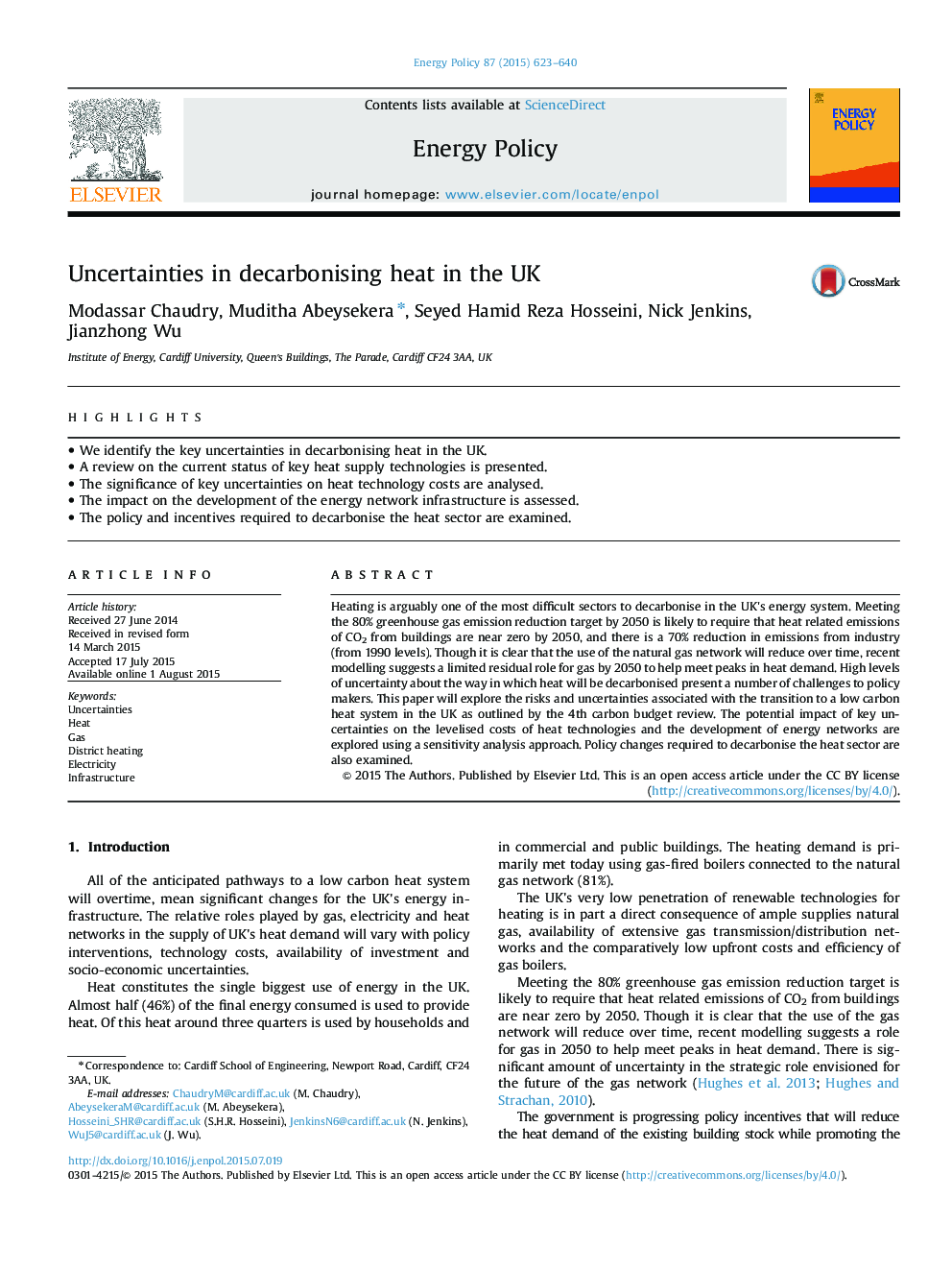| Article ID | Journal | Published Year | Pages | File Type |
|---|---|---|---|---|
| 7400069 | Energy Policy | 2015 | 18 Pages |
Abstract
Heating is arguably one of the most difficult sectors to decarbonise in the UK's energy system. Meeting the 80% greenhouse gas emission reduction target by 2050 is likely to require that heat related emissions of CO2 from buildings are near zero by 2050, and there is a 70% reduction in emissions from industry (from 1990 levels). Though it is clear that the use of the natural gas network will reduce over time, recent modelling suggests a limited residual role for gas by 2050 to help meet peaks in heat demand. High levels of uncertainty about the way in which heat will be decarbonised present a number of challenges to policy makers. This paper will explore the risks and uncertainties associated with the transition to a low carbon heat system in the UK as outlined by the 4th carbon budget review. The potential impact of key uncertainties on the levelised costs of heat technologies and the development of energy networks are explored using a sensitivity analysis approach. Policy changes required to decarbonise the heat sector are also examined.
Related Topics
Physical Sciences and Engineering
Energy
Energy Engineering and Power Technology
Authors
Modassar Chaudry, Muditha Abeysekera, Seyed Hamid Reza Hosseini, Nick Jenkins, Jianzhong Wu,
